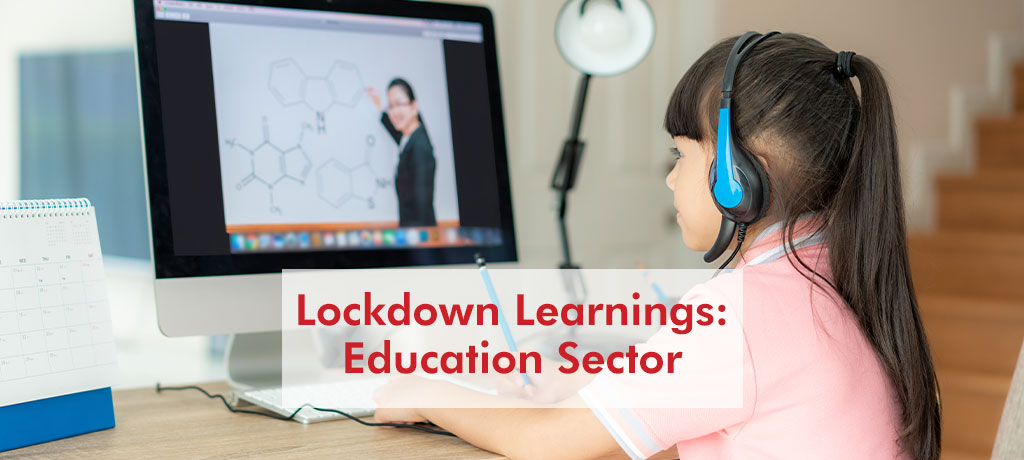I am not sure how many of you have seen the film “Groundhog Day” in which the self-centred television weatherman Phil Connors is forced to relive the same day over and over again. In my 20 years of working with schools and universities, I get the same feeling when I look at the education sector, it’s stuck in a repetitive loop or time warp. Nothing has changed for decades. Of course, there has been a mushrooming of education institutes, but except for the buildings, which have become classier and airconditioned (as some schools would like to advertise), none of them have tried to embrace change in a meaningful manner.
The teachers have been happy doing the same thing over and over again, afraid of leaving their comfort zone. I wouldn’t say it is their fault, with no incentives in place and the workplaces not demanding them, why would they want to upskill themselves?
The parents, on the other hand, are happy when their children get 90 plus and for them, that is the true meaning of education and the end game.
The biggest sufferers of this dead model are the students who have been given a raw deal and hoodwinked into believing that it is the percentage and a job which is the pinnacle of success. Burdened by the weight of their parents’ expectations and a system which is insensitive, they are the zombies of our times. Bereft of any imagination and creativity, they are like the lifeless cars being manufactured on a production line.
I remember when the computers stood at our doorsteps and reluctantly the schools opened their doors. Most of the advertisement campaigns by schools boasted of a computer lab. Since then we have moved on to STEM labs, and SMART classrooms. But there has never been any meaningful change.
The lockdown has exposed us and laid us bare to the elements. As schools, we have never felt so threatened and cornered. Hats off to the teacher community which is struggling to teach online with no or little skills to fall back on. It has been a rude shock for all the stakeholders; the schools the teachers, the students and the parents.
The fourth industrial revolution is upon us. These are the opening lines of the speech given by Klaus Schwab who is the Founder and Executive Chairman of the World Economic Forum: “We stand on the brink of a technological revolution that will fundamentally alter the way we live, work, and relate to one another. In its scale, scope, and complexity, the transformation will be unlike anything humankind has experienced before. We do not yet know just how it will unfold, but one thing is clear: the response to it must be integrated and comprehensive, involving all stakeholders of the global polity, from the public and private sectors to academia and civil society.” We need to pay heed to them.
The era of personalised education is upon us. It is time to learn, unlearn and learn.
Schools need to invest in technology and teachers.
Moving ahead, the schools need to invest in technology and also embrace it wholeheartedly. They need to do so in a planned and phased manner. The knee jerk response to the lockdown is not sustainable. We might have shifted our classes on Zoom or Google classroom but that will not be workable in the long run. They are like band-aids. They hace gotten us so far but no more. Schools need Learning and Content Management Systems.
Schools also need to handhold the teachers in their transition to online teaching. They need to get acquainted with blended and flipped teaching and learning models. Teaching them basic skills like making PPTs, creating excel sheets, Google forms etc will go a long way in ensuring technology becomes an everyday tool in the classroom just like a green board.
New learning goals will need new models of assessments:
Asking students to demonstrate their understanding of the subject matter is critical to the learning process; it is essential to evaluate whether the educational goals and standards of the lessons are being met.
Today’s students need to know skills that will allow them to face a world that is continually changing. They must be able to think critically, to analyze, and to make inferences. Changes in the skills base and knowledge our students need require new learning goals; these new learning goals change the relationship between assessment and instruction. Therefore, we will have to devise assessments techniques and not just rely on the end of the year assessments.
Students will have to take ownership of their learning:
For students, just like teachers, it’s a paradigm shift. Moving away from the security of a conventional classroom can have a debilitating effect at first. The other danger is getting lost in the world wide web and be exposed to information which may or may not be relevant to their studies. But then if a Learning Management System is in place the students’ online presence can be controlled and monitored.
Just like teachers, students will have to learn new-age skills. They will have to take ownership of their learning. In a blending learning model, students have some control over the path, pace and time. This can be a good thing or a bad thing. For the students who have been spoon-fed throughout their lives, initially, this freedom can be quite challenging. But over time and with a little hand-holding and discipline, I am sure they will adapt.
The real world is no fairyland. To do well out there, students need a whole arsenal of skills. Along with academic excellence, students will need critical thinking and analytical skills. Resilience, grit and creativity have been and are the hallmark of success and they can be learned.
On one hand, the lockdown has come with its own challenges but it has also opened up a world of opportunities. How we look at it will define our future.
Written by Madhukar Dhiman.
He is the Director of Rosemounts Institute, a languages, skills and careers developing centre. During the lockdown, he has trained more than 600 teachers across India helping them make the transition to online teaching. His workshops are free, and anybody can take them. You can write back to him on madhukar@rosemounts.org




